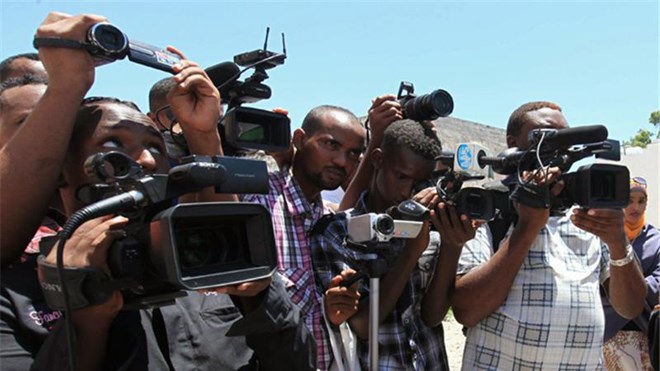DefendDefenders joins journalists and press freedom advocates globally to mark World Press Freedom Day 2023.
The theme for this year’s commemoration: “Shaping a Future of Rights: Freedom of expression as a driver for all other human rights” is an important reminder about the centrality of a free press and the right to freedom of expression to the enjoyment of the broader spectrum of fundamental rights and freedoms.
30 years ago, when the UN General Assembly designated 3 May as World Press Freedom Day, the proclamation was a big boost for not only freedom of expression but for all-round civic freedoms generally. In Africa in particular, coming at a time when the movement for democracy and neoliberal reforms was sweeping across the continent, the proclamation led to a proliferation of independent media outlets, ensuring that significantly more people could access and disseminate information.
Increased media freedom in turn encouraged more public and private sector scrutiny, gave voice to a diversity of political thought and views, significantly checked cold-war era political repression and human rights excesses, and progressively engendered more open, freer, and vibrant societies.
In the recent past however, this civic vibrancy enabled by a free press has been met with increasing cynicism. As democracy regresses on the continent, giving way to authoritarianism and conflict in parts like the Sahel, the North and the Horn of Africa, media-enabled scrutiny of these situations and the attendant human rights excesses increasingly gets frowned upon, resulting in the shutting down of media houses, and the arrest and sometimes killing of journalists striving to bring these stories to the world’s attention. In 2021 alone, 75 African journalists were detained by their governments, according to the Collaboration on International ICT Policy for East and Southern Africa (CIPESA).
In Sudan alone, since the country’s military overthrew the civilian government in a coup in October 2021, there have been more than 55 violations reported against the media, ranging from harassment, physical assault and arbitrary detention of journalists to denial of licenses to foreign journalists and correspondents. By November 2021, at least 36 local radio stations had been shutdown for their coverage of anti-coup protests, according to the Euro-Mediterranean Human Rights Monitor. These violations have gotten worse with the latest wave of fighting between the country’s military rulers that broke out last month, with many journalists finding themselves trapped between combat zones.
Even in less volatile situations, governments are mooting draconian laws to criminalise online journalism and shutting down the internet to evade citizen scrutiny especially in times of intense political contestation and during elections. As a result, majority African countries fall within the “difficult”(33.3%) and “problematic”(47.9%) categories of the latest World Press Freedom Index by Reporters without Borders.
This situation must change. As the continent gears up to join the rest of the world to mark the 75th anniversary of the Universal Declaration of Human Rights (UDHR ) later this year, it must care to reflect on and commit to live up to its obligations under one of the UDHR’s’ central articles – Article 19, which provides for the right to freedom of opinion and expression, including the freedom to hold opinions without interference, and to seek, receive and impart information and ideas through any media across all frontiers. This will require countries to not only commit to guarantee a safe and enabling environment for a free and independent press, but also for all journalists to practice their trade without fear of reprisals.
On its part, DefendDefenders will continue to prioritise the safety and security of journalists as frontline human rights defenders and call upon all other likeminded advocates all over the world to support them in their noble endeavor.
Hassan Shire,
Executive Director, DefendDefenders
Chairperson, AfricanDefenders

